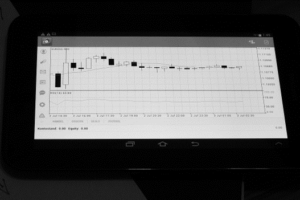
Sooner or later, the idea of a business loan will naturally kick in, whether you are after expansion or you need to keep up with the bills at times. The recent PPP loans were proven quite helpful throughout the coronavirus pandemic, but the program is over now.
Luckily, you can still find a Paycheck Protection Program alternative, but you will probably need do it the old school way – find a lender, shop around, consider interest rates and so on. Here are the most important considerations before getting a business loan.
Get a business plan
Writing up a business plan is a must – this is one of the factors that most lenders will ask about. Moreover, it will give you some hints about your next step – a must for every business owner. When it comes to lenders, they want to ensure your business is credible and on track.
You need some skills and knowledge. You need to assess your competition, goals, past expenses and revenue, as well as future costs. You need to analyze the market and figure out ways to grow your business.
Decide on the loan amount and purpose
You will never be able to get a loan if you only think you need some money. You need to write everything down and based on your business plan, you need to determine how much money you require, as well as how you intend to spend it to ensure profitability.
These two aspects must be crystal clear for lenders, but also for yourself. This type of research may reveal that you require more or less money than what you thought in the first place. If you are lucky enough, you may not even need a loan after all.
Be aware of your collateral
Chances are you will not be asked for collateral if you need $10,000 or a small amount of money. But if the loan is quite high, lenders will need something to help you gain credibility. When it comes to business equipment, the equipment is likely to be used as collateral.
Other than that, you need to be aware of the collateral you might need to come up with. You need to know how much your stuff is worth and whether or not you are willing to take a risk. When you get a business plan, think about all your assets too and put a realistic price on them.
Research lenders
Finding the best lender is not all about going to your bank. Sometimes, you may have to shop around. Different types of loans are more suitable from different lenders. Once you know how much you need, you will have to find the best deal around.
A broker is probably your best option because they conduct all this research for you – find an independent broker though. Other than that, if you choose to do everything yourself, pay attention to interest rates, fees and the duration of the loan, which will dictate the monthly repayments.
Get your financial statements ready
There are more reasons why you will need financial statements. First, they might be required by the lender. They need to know a bit about the past of the company, expenses, revenue and so on before making a decision.
Second, you can use these statements yourself. You might have a seasonal business – it makes sense for sales to be low now, but they may skyrocket in a few months. If you notice a pattern, you should take it in consideration and maybe wait a little more.
Check your credit history
Your credit history is extremely important for lenders when applying for a loan. Start checking it way before you actually apply – in fact, you should make a habit out of it and check it a few times a year. Report and fix mistakes before you actually need to.
The point is to show your potential lender that you are financially responsible. Potential mistakes on your credit history can prevent you from reaching a good deal, hence the necessity to get everything sorted out upfront.
Figure out long term costs
Your loan will come with a price. Apart from the principal, you will need to consider the interest rate, as well as all the fees associated with the loan. The principal will always be the same, regardless of who you choose. All these expenses make the difference then.
Most of these things are clear, but you should still check the small print. You should still figure out all the terms and conditions to estimate the actual cost of the loan. Do this for every offer you get to ensure a good final choice.
Conclusion
In the end, just like for personal loans, there will be all sorts of considerations you need to keep in mind before taking a business loan. While some of them may seem insignificant, they will actually save you money in the long run.






